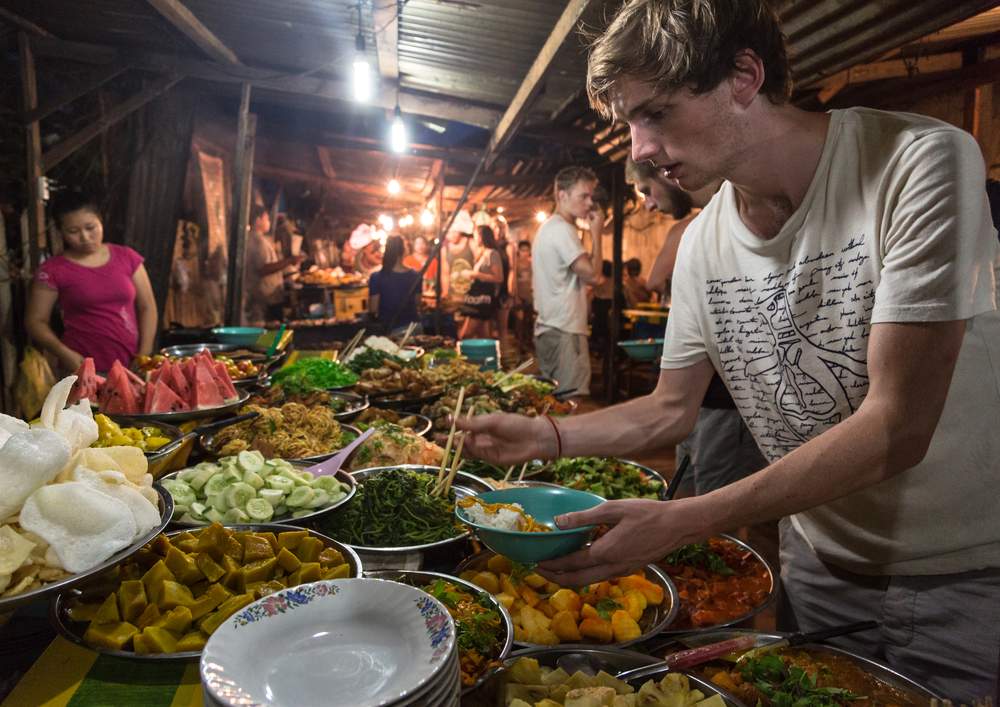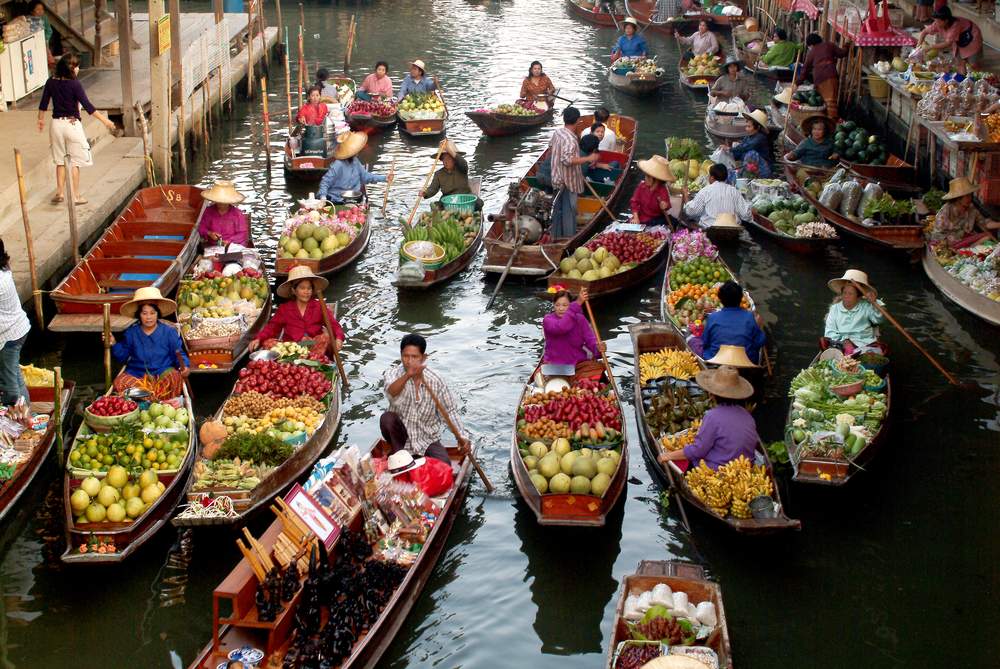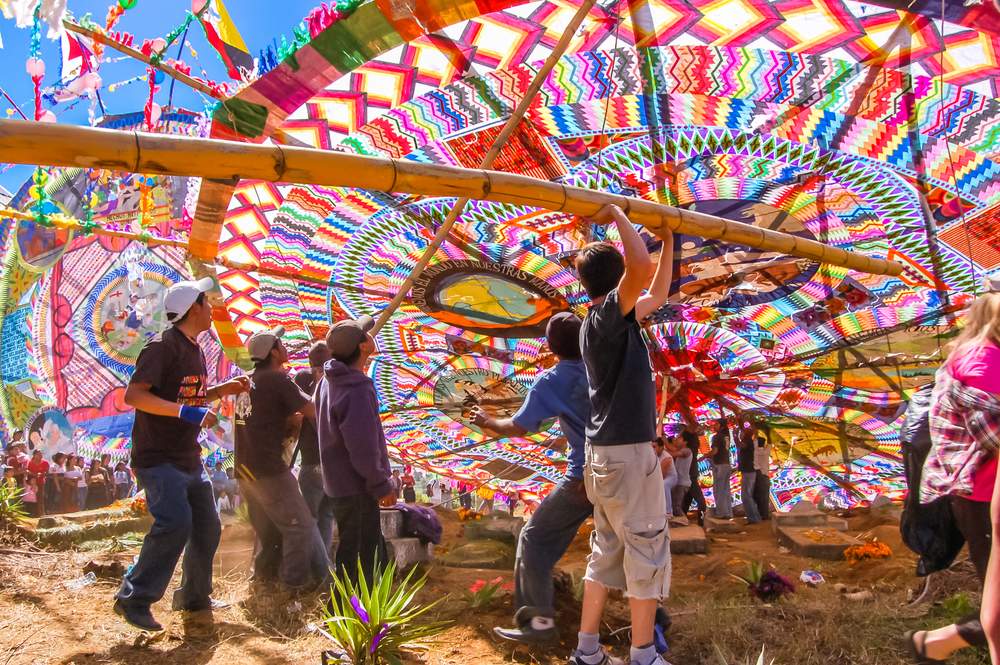Why is there an increased interest in connecting with locals?
With the spread of tourism, more, and more, destinations have been discovered. What only backpackers would have seen in the 1960s, 70s, and 80s has, since the millennium, become part of wider tourism. But, the desire to venture off the beaten track and to explore those destinations that have not been discovered (or aspects of destinations that welcome thousands of tourists) has not disappeared. In recent years, there has been an increased interest in getting to the bottom of the undiscovered.
How can we connect with locals abroad? And how will this connection allow us to experience a destination in a different way than by just visiting the famous sites?
Words such as “authentic,” “real,” and “local” are recurrently appearing across travel publications, both print and digital. Blogs, such as
MADbudget: a local’s guide to Madrid, or apps such as
Spotted by Locals now also cater specifically to this trend.
In this quest for authenticity, we may ask ourselves: How can we connect with locals abroad? And how will this connection allow us to experience a destination in a different way than by just visiting the famous sites?
Learn the Local Language

One of the most important characteristics that differentiates humans from animals is language. As the primary communication tool, language can make or break cultural barriers. One could even go as far as saying that by not being able to communicate in the local language, you are reducing yourself to animal-like relations. If you don’t want to rely on sign language, a translator, or any kind of other (more primitive) communication method, start learning the local language.
Why?
In addition to allowing you to understand the literal meaning of phrases, you can investigate the etymology of certain words and learn more about the country’s history. Colloquial phrases, too, can give you an insight into the way of life.
For example, did you know that the Spanish word puente literally means bridge, but also refers to a long weekend that results because of a mid-week holiday? Puentes characterize the workplace in Spain. As a tourist, this might not be relevant at first sight since you wouldn’t be working. However, if you want to save on airfares, hotel rates, and avoid traffic, you should know about puentes and travel during the off-season.
Read 10 Ways to Learn a Foreign Language That Aren’t All Obvious and Budget Language Study: 5 Alternative Locations Around the World
Get Familiar With the Local Political System

A country is shaped by its politics. As a traveler, you should be familiar with the destination’s political situation BEFORE you even book your tickets. Check out
the official website of the U.S. Department of State, which provides country-specific information, including visa requirements, the location of the embassy, as well as security threats, crime rates, medical information, and road conditions.
Why?
Once in-country, you should also stay updated on what is going on. By reading newspapers, watching local TV channels, and speaking to locals, you can learn about what bothers them. When you first arrive, your best bet is to sit back and listen. Manifesting your own opinions can possibly get you into trouble, depending on where you are and what you say. If you feel motivated to help, you can start by volunteering, observing a local demonstration, or finding ways to become part of the solution.
Attend a Regional Cooking Class

Indian samosas, Mexican guacamole, German potato salad… doesn’t all of that sound delicious? If you travel to these respective countries, you will be able to try these local specialties first-hand. But one way of delving deeper would be to make them yourself. Sure, you could go online, print out a recipe, and give it a try. However, wouldn’t it be more fun to learn from a local expert? Regional cooking classes offer you precisely this possibility.
Why?
Food is a reflection of culture. While every cooking school is different, the key is to attend one that is run by locals. Ideally, you might even be able to find a school that combines time in the kitchen with some lessons on the history of the place. The
New Orleans School of Cooking, for example, has received raving reviews stating that it provides not only delicious food and complimentary Abita beer (locally brewed, of course), but also gives an overview of the history of New Orleans. If you get lucky, you might even learn to cook with a chef who will tell you interesting stories about his or her personal background as a Cajun.
Read The Best Travel Souvenir: Cooking Classes Abroad and Immerse Yourself in a Culture While Learning
Play or Watch a Local Sport

Sports can move a nation. While we’re all familiar with American football and European soccer, those aren’t the only popular sports across the world. Check out this article on
10 Weird Sports from Around the World if you want to find out about some of the more unusual pastimes. As a traveler, you have options: watch others play the sport or try a hand at it yourself. Don’t be shy – you probably won’t win the first time around, but if you take it slow, you can have a lot of fun and learn from the locals.
Why?
Watching athletic events can give you an insider’s look at the country and its culture. As you sit and cheer alongside locals at the stadium or a nearby bar, you become privy to another vantage point of that particular culture. If you can, try to watch a game at a local person’s home; that will bring you even closer to an authentic experience.
At home, families and friends will frequently come together, and typical food is usually served, too. From cricket in India to rugby in Australia and New Zealand to baseball and football in the United States and soccer just about everywhere, watching sports is a fundamental experience to be had with the locals.
Also, if you aren’t yet fluent in the local language, watching or learning how to play a sport can be a great way to bond. Moreover, since most sports take place outdoors, it will give you a chance to enjoy the surrounding environment, too. If you’re not so athletically inclined, try learning a local card or board game.
Read 5 Unexpected Places to Learn to Surf and Hashing, Extreme Croquet, and More: The Best Boozy Sports Around the World
Volunteer at a Local NGO

Volunteer work gives you an insight into the problems a country and its people suffer. Whether you are helping AIDs orphans in Africa or teaching English in Cambodia, you will be helping out while learning at the same time. Becoming confronted with how few medical supplies are available in Africa can leave a lasting impression for the rest of your life. Signing up for volunteer work might sound easy, but you should definitely come prepared.
Why?
More Connections

The ways to connect with locals go on and on. Depending on your interests, you will be able to find locals abroad that share precisely those same passions. But you will have to look for them. Check out sites such as
Localyte, which connect travelers with locals for insider travel advice. Apart from that, you can always resort to the famous
Couchsurfing to find local couches to sleep on (and hosts that will teach you about the surrounding neighborhood).
In addition to these networks, which operate worldwide, consult destination-specific sites. Sandemans New Europe tours, for example, are run by local experts, who will guide you through the city. Factual historical information is combined with personal stories, and tour guides frequently offer personalized advice if you are looking for a specific service, be it a cooking course or yoga class.
The Bottom Line

When you try to connect with locals, try not to look like a foreigner. While in some cases, this will be impossible, you can always make an effort to dress in clothes similar to what the locals wear. Similarly, leaving your camera (and other valuables) at home can help; not only will you be less of a target for theft, but you will also be able to see the destination through your own eyes as opposed to a lens. Calling less attention to yourself can decrease your chance of getting ripped off, or worse, robbed. All in all, if you make an effort to fit in, chances are that you will be treated with more respect.
“By immersing yourself, you will learn more about the destination. But equally important is that you will learn more about yourself.”
By immersing yourself, you will learn more about the destination. But equally important is that you will learn more about yourself. By experiencing a different political system, you will evaluate your own country’s situation more critically, finding differences that are both positive and negative. Similarly, by learning colloquial phrases in a foreign language and investigating their etymology, you can make comparisons to your own language. Just as learning a language takes time, so does immersing oneself in the local community. Take it slow and savor every moment of that journey of discovery.
Wanna Learn More About Going Local?
We spoke with Sherry Ott of
Meet, Plan, Go, and Lisa Lubin of
LL World Tour about the idea of
Going Local, and they both gave great insight on digging into the local culture and doing more than just seeing the famous sites.







